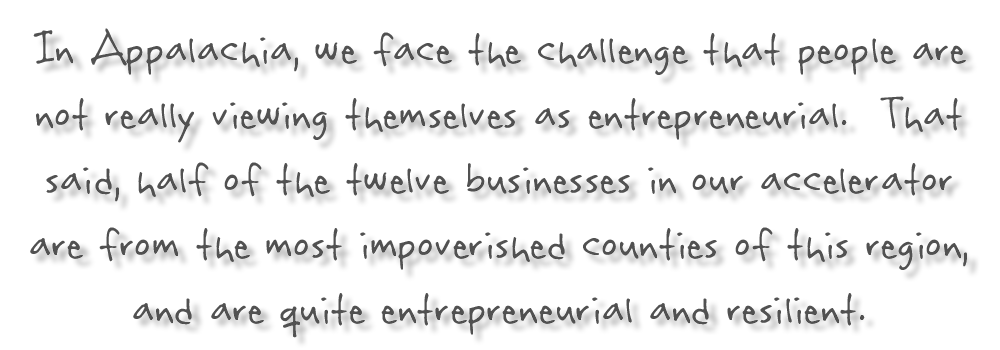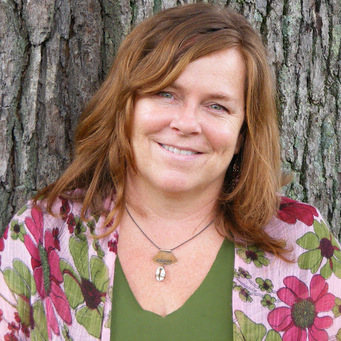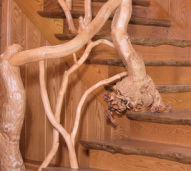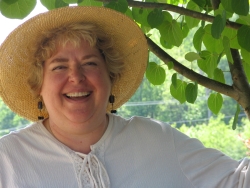Accelerating Appalachia
THE REGENERATIVE QUALITIES OF ACCELERATING APPALACHIA
Honors Community& Place / In Right Relationship / Wealth Viewed Holistically
Honors Community& Place / In Right Relationship / Wealth Viewed Holistically
|
Sara Day Evans, a sixth generation Kentuckian, tells the story of the people and places that inspired her to found Accelerating Appalachia, a new business accelerator that is nurturing natural and entrepreneurial capital to appropriately scale a post-extractive, regenerative economy in coal country.
|
|
People are turning to one another and, to quote my colleague, Sandy Maxey, saying, “No one is coming to save us. We have to do this on our own.” We know we “can’t build on broken.” Even though we know there is plenty that is broken, we are working to support a post-extractive, post-coal economy for Appalachia and beyond, by building on our region’s assets. It's about sharing inspired stories of the strength, persistence, creativity, and resilience of businesses that work with nature - food, farming, forests, fiber, fuels - developing a place-based economy. I grew up in the Shenandoah Valley and central bluegrass Kentucky, and spent a lot of time outdoors - literally from sun up to sun down. The first conversations about Accelerating Appalachia began in 2011, but came out of the trajectory I have been on personally for all of my life and professionally for 20 some-odd years, always nested in people, place, and prosperity. Besides my parents, I’ve been heavily influenced by Wendell Berry and his daughter, Mary, who are my lifelong friends. Mary launched the Berry Center for Farming and Agriculture about the same time I launched the accelerator, so we’ve conspired and collaborated. Mary has beautifully taken up the charge of her father, uncle, and grandfather, but with her own unique voice. When I question my own purpose (and I often do), my parents, my children, and Wendell have always been solid barometers - and if I can reach her, I call up Mary and ask her opinion. We don’t always agree on everything, but we know we are in this together. For 13 years I worked on establishing Kentucky’s groundwater and solid waste programs, and then started looking at ways to support sustainable economies in rural Appalachia, with a people/place-based sensibility. |
Sign up for the Field Guide Email Newsletter |
|
After working in the rural economies of Appalachia for about four years, there seemed to be great potential in tapping into the skill base of the former manufacturing and agriculture economies — food, farming, forests, fiber, and fuels. Southern/Central Appalachia is one of most biodiverse regions in the world, so how could we harness that energy to power our lives and our economies going forward?
About three years ago, I was drawn into a conversation here in western North Carolina with international leaders in social enterprise and impact investing, Kevin Jones and Rosa Lee Harden, conveners of SOCAP and cofounders of Good Capital. When I learned more about the “doing well by doing good” global movement I got pretty excited. Coincidentally, I had recently launched a for-profit social enterprise with partners in good, Prosperity Collective, consulting on clean energy, farms, training youth in rural areas, and in the waste and water sectors. |
|
– but not forgetting that People ARE nature! As my Dad – who passed away in 2012 and whose general good nature and straightforward ways continue to guide me – always said, “humans are the only species that 'poop' in their own nest!" (He was a colorful man, and those weren’t his words exactly).
Kevin and Rosa Lee invited me to be a part of SOCAP in 2012 and 2013 and to work with social entrepreneurs from around the world. They connected me to Ross Baird, founder of Village Capital, who with his team, provided immeasurable guidance and support in all aspects of our accelerator development - a blended Lean Launchpad/peer-mentorship/social enterprise method. We then adapted and continue to adapt for a program that supports the sectors of food, farming, forests, etc, for the nature of our place, and for businesses that aren’t necessarily scaling globally. However, we do accept those too, and one of our businesses, Climate Alive, is definitely solving globally for long-term climate planning for farmers and others. We also know that even within Appalachia, the economies and skill sets vary from place to place, so we hope to ensure flexibility with a model that supports local and regional economies as well. We launched applications for Accelerating Appalachia in March 2013, and with a tiny marketing budget, received over 100 applications from all over the country for the 12 openings for our fall session - we knew we had tapped into something essential. We used a fairly rigorous selection process, including surveys and vetting through a panel of our internal team, businesses, investors, mentors, and government folks to make the final selection. Some of our criteria were the quality of the team, the viability of the for-profit business model, paying a living wage or better, creating good jobs in impoverished regions, and doing something good for “place” in the nature-based sectors. |
|
We also had an unexpected response from women-led businesses - 75 percent of the applicants had women on the founding team!
Raising capital was of course a challenge in a region known for economic scarcity, but we found investors in and outside of our region, interested in investing in our nature-based sectors and/or Appalachia. And, like many other social enterprise accelerators, and investment in general, we are working to help solve the “Pioneer Gap” in investment (from under $50k - $1 million) - providing a lot of the “due diligence” process that will save investors on that cost. Besides connecting some of our businesses seeking $1 million or more to potential impact investing programs and VC-type investments, there is also an investment club coming together around the nature-based sectors for smaller investments. We have taken our businesses on the road, into Kentucky and Raleigh, to help connect them to broader markets and potential investment opportunities. We are now assessing our first year, surveying participants and mentors, for lessons learned for moving forward, and responding - quickly but methodically - to a great deal of interest from other regions on how to scale the accelerator in ways that serve the nature-based sectors and Appalachia. |
|
What we’ve learned so far: we had some well-developed businesses in the accelerator, 65 percent post-revenue, average of 4 years in business, and spanning from start-up to 20 years in business. Our curriculum appears to serve the earlier stage businesses the best, with need for one-on-one consulting for the more mature businesses. We also learned that we need to introduce the financial/investment curriculum earlier and spend more time there - on the different types of investment (equity, lending, revenue share) and on the pros and cons of taking on each of these types of investment. Most of the businesses are doing well, we want to help them do better! We are still in the middle of our survey, so these are just preliminary take-aways.
We are also really excited to be working in 2014 with the sustainable business classes and social enterprise classes at Warren Wilson College in western North Carolina and Berea College in Kentucky. We are using a condensed version of the curriculum and getting the students out of the classroom and working with businesses, equipping them with necessary questions for understanding the mechanics of launching and running a business. Accelerating Appalachia is a not for profit and is funded by a combination of my own investment (financial and thousands of sweat equity hours from my partners and me) via the Prosperity Collective, friends and family funding, private foundation funds, and a grant from our regional economic development organization via Appalachian Regional Commission. There are accelerators that take an equity stake in their companies but we have not decided yet if that is a model we want to pursue. In the first year we had far exceeded the required $75,000 match for our grant over three years, with over $1 million in-kind services from our significant network and their thousands of hours helping us get up and running. We cannot say enough about the support we received from Village Capital and the SOCAP folks and time and energy they invested in helping to launch our program. We are definitely a beneficiary of the “sharing economy” and hopefully are returning the favor by keeping our services affordable and our budget lean. |
|
You will have huge doubts and face seemingly insurmountable odds, so surround yourself with trusted friends and colleagues that inspire and keep you honest! |
|
Barkhouse, a 20-year old sustainable forest products business, founded and owned by Christie and Marty McCurry is based in Mitchell County, NC. It is a founding B-Corp business and Cradle-to-Cradle certified. Barkhouse recycles tulip poplar logging waste into ten beautiful natural building products. Their signature product, the original tulip bark shingle, is sold worldwide. They've created over 200 living wage jobs in one of the most impoverished counties in North Carolina. Barkhouse was named to the top 92 B-Corporations for overall social and environmental impact.
|
|
Appalachian Botanical Alliance, is a startup for-profit botanical growers cooperative, run by five women owner/growers. ABA grows Ayurvedic and Chinese herbs in the uniquely biodiverse region of western North Carolina, producing a fresher product with greater quality control for medicinal herb practitioners, distributors, and manufacturers. They are also working on a patented "solar dryer" that could scale across the industry.
|
|
Other Accelerator businesses include Veterans-to-Farmers, training veterans in indoor agriculture and Carolina Ground, the only mill in the Southeast working with regional organic growers. Visit the Accelerating Appalachia website for more companies.
Share your comments on ACCELERATING APPALACHIA here: |












